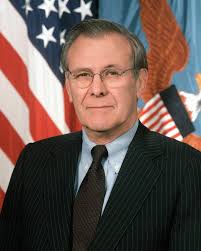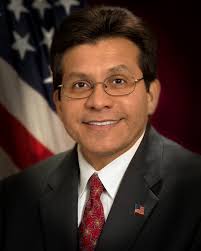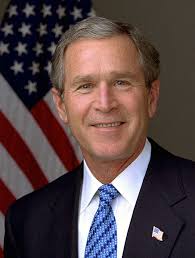It’s easy to criticize things in the past that didn’t work. Knowing that something failed validates the criticism in advance. And people who are failing, or who have failed, fall into a trap themselves. They continue to justify their plan, even when it’s clear it didn’t work out. They often keep pushing a failing enterprise, trying to pull it out of the fire eg "the Surge." Worse, they try to say "it worked" when it’s obvious it didn’t. So, we have self righteous critics, "I told you it wouldn’t work." And we have rationalizing defenders, "It did work. See, there have been no further attacks." And sometimes, they claim that what looks like failure is really a new problem, "How could we have predicted the insurgency?"






So, when we look back at the Bush Administration, we have to be careful not to punish failure. That’s the part that would be dangerous for our future. Our leadersa have the same right to fail as the rest of us. In fact, the right to fail is a bedrock American Principle. It’s called bankruptcy. We don’t throw you in debtor’s prison here. They tried that in England, and ended up colonizing the New World with their debtors. We just take you out of the game until you prove you’ve learned how to play.
When we review what our last Administration did, we have to evaluate each piece of it with this question, "What if it had worked?" For example, if in the course of torturing Abu Zubaydah. he had said, "Osama bin Laden lives at 3254 Maple Street in Islamabad, Pakistan", and we’d sent a kidnapping squad there that picked bin Laden up and flown him to Thailand where he was tortured and told us where all the al Qaeda cells were in the world – would we then be so down on torture? Or what if we’d data-mined all the phone calls in Georgia for the phrase "Savannah River Plant," and figured out there was an al Qaeda plan to attack it and steal plutonium, and we stopped the plot, would we be so down on data-mining? Or if Rumsfeld had listened to the military and sent 400,000 troops to Iraq, secured its borders early, and they had formed a Democratic Government that sold us oil cheap, would we be so down on the Iraq War?
I’ve been impressed that the Obama Administration as a whole appears to be sensitive to these points. They seem to feel that they need to start where we are and move ahead. A lot of us feel otherwise. But are we simply punishing failure? or being partisan? In some instances, the answer is a clear "Yes." But that’s not the whole story. It seems to me that there is one thing that we have every right to focus on – one thing that needs to be fixed. And it lead to a second thing that was even worse.






The one thing was the Bush Administration’s contempt for oversight. They made their plans in secret, put them into action in secret, and only told us things that moved us towards their conclusions. They evaded judicial oversight, congressional oversight, and oversight by the people at large. I believe that I would criticize that even if they had succeeded. In fact, I’m sure of it. The second thing came from this evasion of oversight – they didn’t change course based on the field conditions. They kept going with plans even when it was clear they were failing, or it became apparent that they were bad ideas. They fought to continue plans made in the desperate days of 9/11, unobserved, for now almost eight years.
It was perfectly reasonable to suspect Saddam Hussein had something to do with 9/11. But as they pushed that hypothesis, it became patently obvious that wasn’t true – but they kept on. They interrogated Abu Zubaydah successfully, but when they didn’t learn all they wanted to learn, they tortured him unmercifully [with no results]. Either what they wanted him to say wasn’t true ,or what they wanted to know wasn’t something he knew. Oversight is important in the planning phase of things, but it’s also important when things are put into action. They avoided oversight "period." Our Constitutional Democracy was built on oversight. In many ways, it’s a brilliant system. The Founders seemed to know how human nature and power can interact and go amiss. So they built in Checks and Balances to head off the kind of things that can happen – in this case, did happen.
Oversight, Checks and Balances, things like that can be a huge pain in the ass. I personally hate committees, boards, task forces, situations where decisions are made by many. I prefer being given a job, thinking it through, and doing it. I don’t want advice unless I get stuck and ask for it [So I wouldn’t vote for me for President]. Group decisions are a lot harder. That’s why we have an "Executive" – someone who can get things accomplished ["execute" things]. We even recognize that in emergencies, we need to suspend the group-think because we need action. So we have war-time exceptions to get the job done.






Russ Baker’s book “Family of Secrets”on the front cover says “The bush Dynasty, the powerful forces that put it in the White House, and what their influence means for America”. Once you read this very shocking book, you will never feel the same about Bush 1 and his large family. Talk about secrecy, the day Bush 2 took office he signed a statement that closed the book on all presidents dating back to his father. It wasn’t just an act of power but an urgent move to stop scholars and others from finding out his father and the rest of the Bushs were connected to Saudis and the CIA. I urge you to read this book because after you do you will realize Cheney is bad but Bush & his extended family are just as bad or worse and Iran Contra might have been an embarassing time for Bush 1 but that story is peanuts compared to the one none of the Bush family wants you to know. Check out the author’s reputation and then you know.